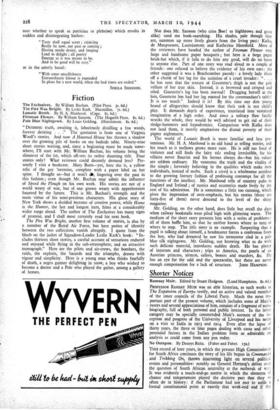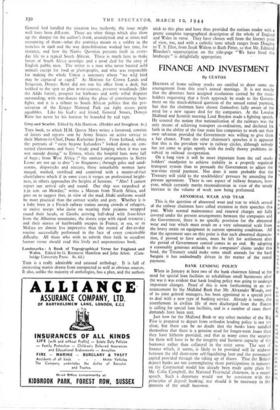No Outspan. By Deneys Reitz. (Faber and Faber. xis.)
Tins record of later years, in which the present High Commissioner for South Africa continues the story of his life begun in Commando and Trekking On, throws interesting light on several political events and personalitiew: notably on General Hertzog's defeat over the question of South African neutrality at the outbreak of war. It was evidently a touch-and-go matter in which the elements of chance and temperament played the decisive part that they so often do in history: if the Parliament had not met to settle a formal constitutional point at exactly that week-end and if the
General had handled the situation less tactlessly, the issue might well have been different. There are other things which also show up the sharper for the author's frank, unanalytical and at times naïf recounting of them—what the armistice meant to a soldier in the trenches in 1918 and the way demobilisation worked last time, for instance, and how the Native Question presents itself in every- day life to a typical South African. There is much here to make lovers of South Africa nostalgic and a good deal for the envy of English public men. The writer is a man who never hunted wild animals except for food or photographs, and who was responsible for making the whole Union a sanctuary where "no wild bird may be captured or caged." As Minister for Crown Lands and Irrigation, Deneys Reitz did not run his office from a desk, but trekked to the spot to plan water-courses, preserve woodlands (like the Addo forest), prospect for harbours and settle tribal disputes outstanding, with war-dances taking the place of constituency bun- fights, and it is a tribute to South African politics that the pre- servation of the Kruger National Park cut right across party squabbles. Like his lead n. and friend, General Smuts, Deneys Reitz has never let his horizon be bounded by red tape.



























 Previous page
Previous page